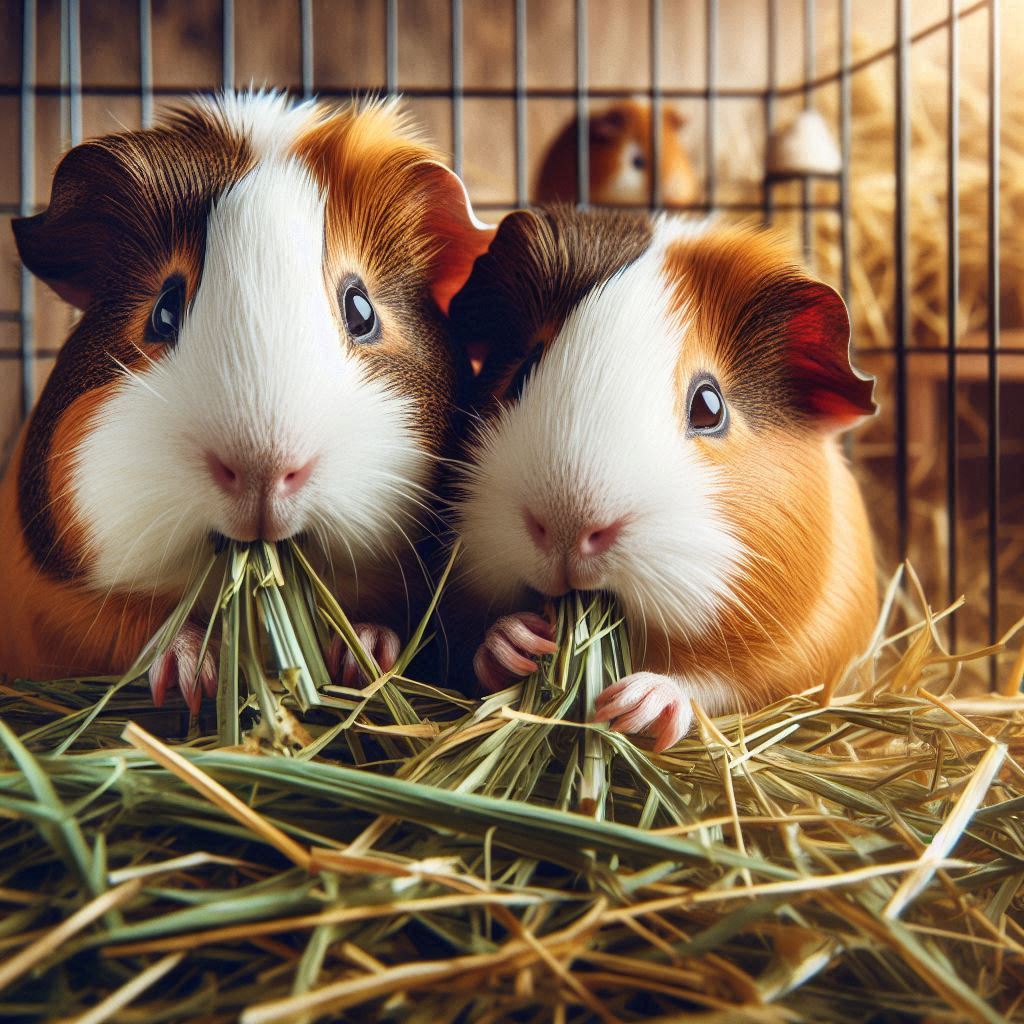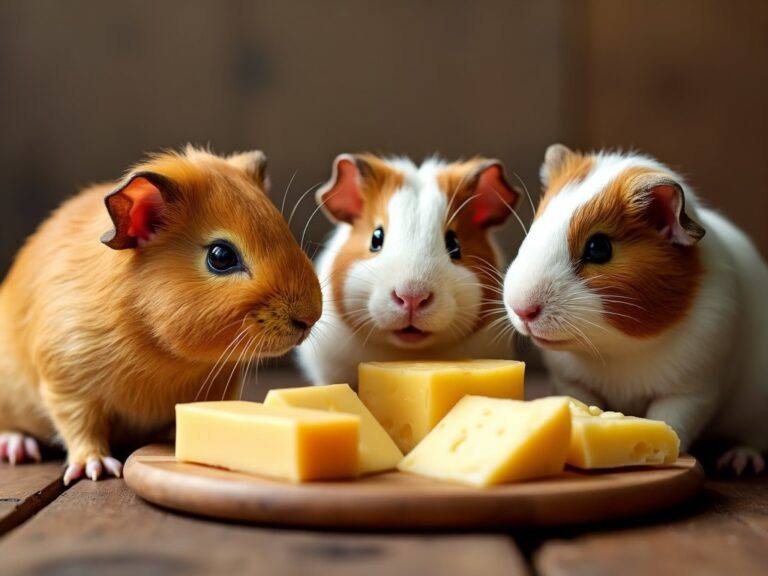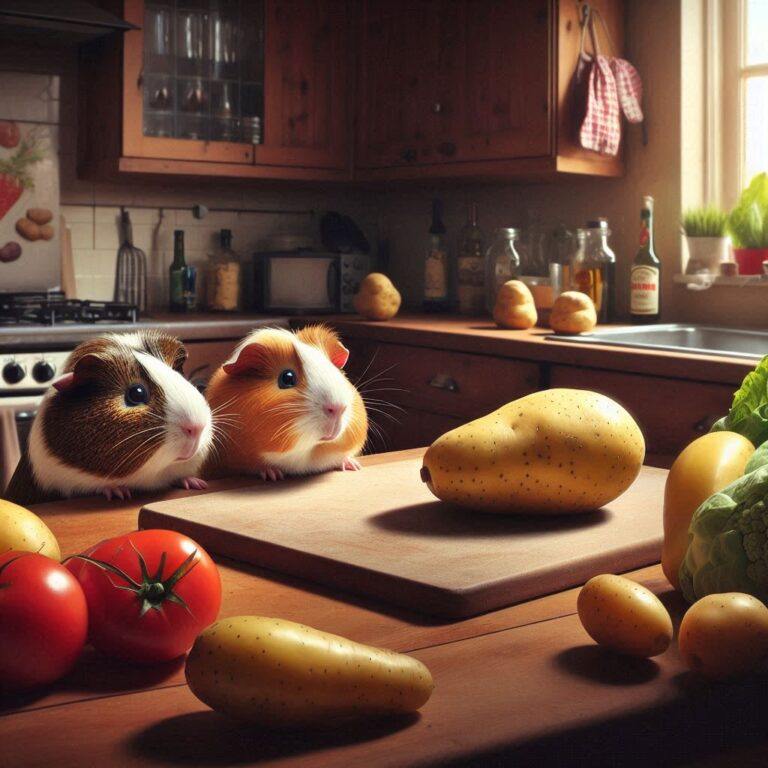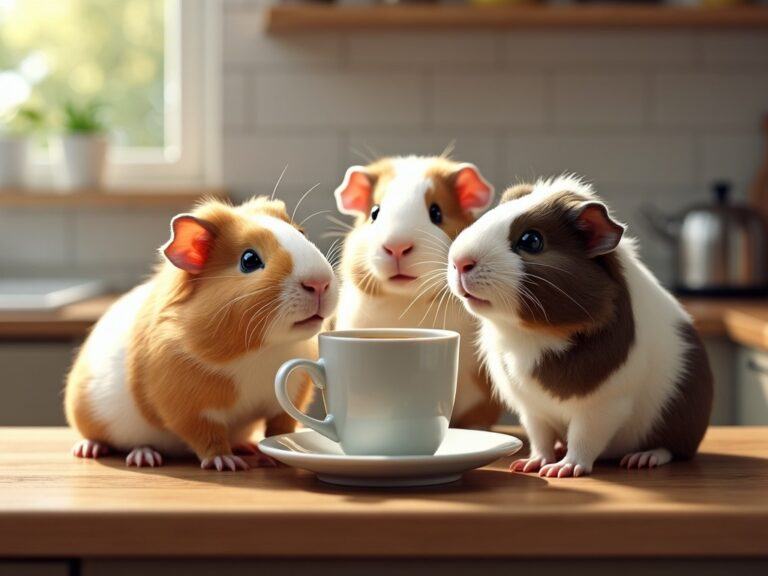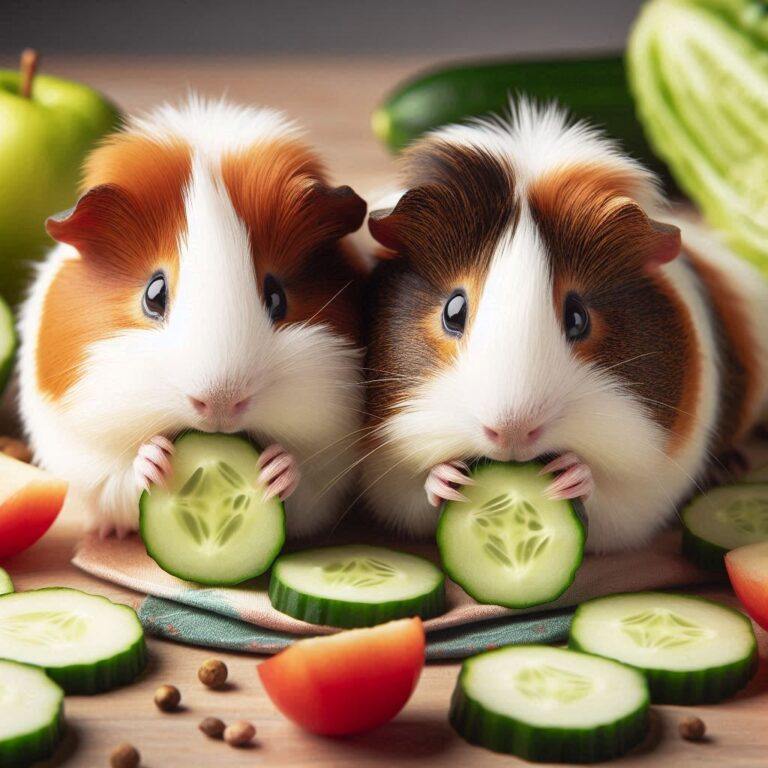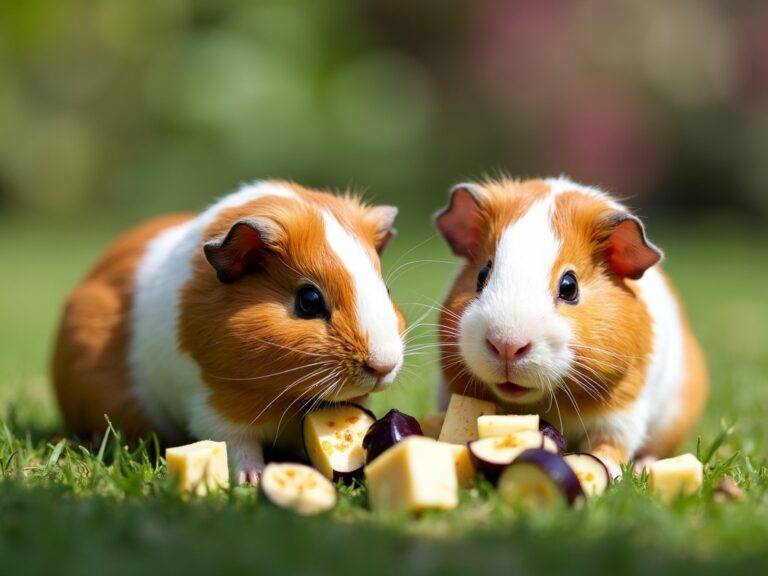Can Guinea Pigs Safely Eat Fresh Hay
Yes, guinea pigs can safely eat fresh hay. In fact, it is a critical part of their daily diet. Hay provides the necessary fiber that supports their delicate digestive systems and ensures their teeth wear down properly, preventing overgrowth. Guinea pigs not only can, but they should have unlimited access to fresh, quality hay at all times.
Hay comes in several types like Timothy, Meadow, or Orchard, each offering distinct benefits. It’s important, however, to choose hay that is free from contaminants such as mold, dust, or harmful chemicals that could pose health risks for these small pets.
A good rule of thumb is to opt for hay that is green, smells fresh, and feels dry to the touch.
Transitioning to the nutritional details, it’s clear that hay isn’t just filler, it’s a potent source of the nutrients that guinea pigs require for robust health.
Ensuring constant access to fresh hay means supporting a healthy life for your furry friend. Let’s look at the specific advantages that different types of hay provide for guinea pigs in the following section.
Understanding the Nutritional Benefits of Hay for Guinea Pigs
I often see hay reduced to a simple bedding material, but for guinea pigs, it’s a powerhouse of nutrition.
Think of it as the foundation of their diet. Every strand of hay is packed with the fibers essential for maintaining a robust digestive system.
Without it, guinea pigs can suffer from significantly reduced gut motility, which can spiral into serious health problems.
It’s not just the belly that benefits. Those ever-growing teeth need something to gnaw on. Hay is the perfect dental floss and tooth grinder in one natural package.
As guinea pigs chew through tough stalks, they wear down their teeth. This prevents overgrowth, which is a common, and often severe, health issue in guinea pigs without access to adequate fibrous material.
Another plus? Hay is incredibly light on calories. It allows our furry friends to satisfy their natural urge to graze throughout the day without the risk of packing on excessive weight.
Obesity in guinea pigs can lead to a host of other health issues, so having a constant supply of hay keeps them busy and their weight in check.
Hay isn’t just an elective addition to a guinea pig’s meal plan, it’s critical. Its low-calorie, high-fiber content not only props up their physical health but also replicates their natural diet, which is vital for their well-being.
Ensure that fresh hay forms the bulk of your guinea pig’s diet, complemented by other nutritious foods for complete nourishment.
Incorporating Hay into Your Guinea Pig’s Daily Diet
Effective incorporation of hay into your guinea pig’s diet is not just about choosing the right type; it’s about consistency and ensuring it always remains available.
Guinea pigs need unlimited access to fresh hay. This mimics their natural grazing behavior, which is critical for their mental and physical well-being.
It’s important to place the hay in a clean, accessible area and change it regularly to avoid soiling and contamination.
While hay should constitute the majority of your pet’s diet, also provide fresh vegetables like carrots or broccoli and a small amount of fortified pellets for a well-rounded regimen.
Monitor your guineas eating habits, as a sudden decrease in hay consumption can be an early sign of dental or health issues.
Regular check-ups with a veterinarian familiar with guinea pigs are advisable to ensure your pet’s diet is supporting its health effectively.
To sum up, hay is not just a dietary staple; it’s a MUST-HAVE for every guinea pig. Remember, a happy guinea pig is one with a pile of fresh hay to nibble on throughout the day.
So make sure your furry friend’s hay rack is never empty, and you’ll have taken a big step toward ensuring their happiness and longevity.

